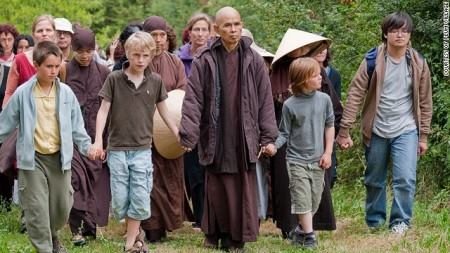Thoughts: Give it time

 “We can smile, breathe, walk, and eat our meals in a way that allows us to be in touch with the abundance of happiness that is available.
“We can smile, breathe, walk, and eat our meals in a way that allows us to be in touch with the abundance of happiness that is available.
“We are very good at preparing to live, but not very good at living.
“We know how to sacrifice ten years for a diploma, and we are willing to work very hard to get a job, a car, a house, and so on. But we have difficulty remembering that we are alive in the present moment, the only moment there is for us to be alive.
“Every breath we take, every step we make, can be filled with peace, joy, and serenity. We need only to be awake, alive in the present moment.”
~ Thich Nhat Hanh


I’ve heard this story in several places, most notably as told by Dan Millman, Derek Sivers, and others. I feel it’s a nice cautionary tale about celebrating too early, before we know how the whole story is going to turn out, or getting down because we think we’re losing in the game. Either way, wait & see.
What do you think, dear heart?
An old man and his son worked a small farm, with only one horse to pull the plow. One day, the horse ran away.
“How terrible,” sympathized the neighbors. “What bad luck.”
“Who knows whether it is bad luck or good luck?” the farmer replied.
A week later, the horse returned from the mountains, leading five wild mares into the barn.
“What wonderful luck!” said the neighbors.
“Good luck? Bad luck? Who knows?” answered the old man.
The next day, the son, trying to tame one of the horses, fell and broke his leg.
“How terrible. What bad luck!”
“Bad luck? Good luck?”
The army came to all the farms to take the young men for war, but the farmer’s son was of no use to them, so he was spared.
“Good? Bad?”